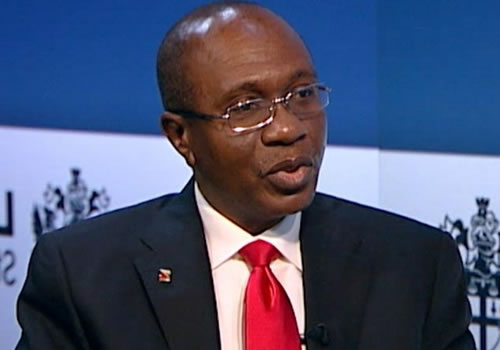At 1.5% Growth Rate, CBN Says Nigeria Economy Is Weak.
BARBARA BAKO, Abuja.
With the growth rate at 1.5 percent in the last quarter of the year, the Monetary Policy Committee of the Central Bank of Nigeria on Tuesday concluded that the economy is weak.
This admission by the apex bank organ shows that the country’s economy is still in the doldrums and could be worsened by the uncertainties in the political circles that have triggered investment flights ahead of the 2019 general elections.
The committee which expressed worry that the exit from recession is threatened as the economy recorded growth rate of 1.95 per cent and 1.5 per cent during the first and the second quarter of this year respectively noted that the slowdown emanated from the oil sector with strong linkages to employment and growth.
The Governor of the CBN, Godwin Emefiele who announced the decision of the committee in a communiqué after the two-day MPC meeting in Abuja said that some of the risks to output growth are late implementation of the 2018 budget, weakening demand and consumer spending, rising contractor debt, and low minimum wage. While others he said, are the impact of flooding on agricultural output, continued security challenges in the North-East and North-Central zones and growing level of sovereign debt.
He said, “The MPC observed that despite the underperformance of key monetary aggregates, headline inflation inched up to 11.23 per cent in 2018 from 11.14 per cent in July 2018. “The near time upside risks to inflation remain the dissipation of the base effect expected from 2019 election related spending , continued herdsmen attacks on farmers and episode of flooding which destroyed farmlands and affected food supply ultimately.
“Relative stability has returned to the foreign exchange market buoyed by the robust external reserves with inflation trending downward for the 18th consecutive month. “The gains so far achieved appeared to be under threat following the new data which provides evidence of weakening fundamentals. “The committee identified rise in inflation, pressure on the external reserves created by the capital flows reversals as the current challenges to growth. “It noted that the underlying pressures have started rebuilding and capital flows reversals have intensified as shown by the bearish trend in the equities market even though the exchange rate remain very stable.
“The committee was concerned that the exit from the recession may be under threat as the economy slide to 1.95 per cent and 1.5 per cent during the first and the second quarter 2018 respectively. “The committee noted that the slowdown emanated from the oil sector with strong linkages to employment and growth.
” On majors that should be taken to stimulate economic activities, the CBN Boss said that though growth remain weak, the effective implementation of the 2018 Federal Government budget and policies that would encourage credit delivery to the real sector of the economy may boost aggregate demand, stimulate economic activity and reduce unemployment. He said, “The MPC observed that despite the underperformance of key monetary aggregates, headline inflation inched up to 11.23 per cent in 2018 from 11.14 per cent in July 2018.
“The near time upside risks to inflation remain the dissipation of the base effect expected from 2019 election related spending , continued herdsmen attacks on farmers and episode of flooding which destroyed farmlands and affected food supply ultimately. “In this regard, the committee urges fiscal authorities to sustain implementation of 2018 budget to relieve the supply side growth constraints so that it can address the flooding which has become perennial on a permanent basis.
” The CBN governor said the committee urged government to take advantage of the current rising trend in oil prices to rebuild fiscal buffers, strengthen government finances in the medium term and reverse the current trend of decline in output growth. The MPC, according to him, also called on the fiscal authority to intensify the implementation of the Economic Recovery and Growth Plan to stimulate economic activities bridge the output gap and create employment.
The apex bank boss also said the MPC expressed concern over the potential impact of liquidity injection from election related spending, and increase in Federal allocation which is rising in tandem with increase in oil receipt. On Monetary Policy Rate (MPR), the Governor said that it remain unchanged at 14 per cent. Emefiele, announced the decision of the committee at the end of a two-day meeting. He explained that seven out of the ten members of the committee that attended the meeting voted to maintain the current monetary policy stance.
However, He said three out of these seven members voted to raise Cash Reserve Ratio by 150 basis point The other three members he said, voted to tighten by raising the MPR by 25 basis point. He said apart from the MPR which was retained at 14 per cent, the committee also retained the Cash Reserves Ratio at 22.5 per cent. He added that also retained are the Liquidity Ratio which was left at 30 per cent; and the Asymmetric Window which was left at +200 and -500 basis points around the MPR.



Comments are closed.